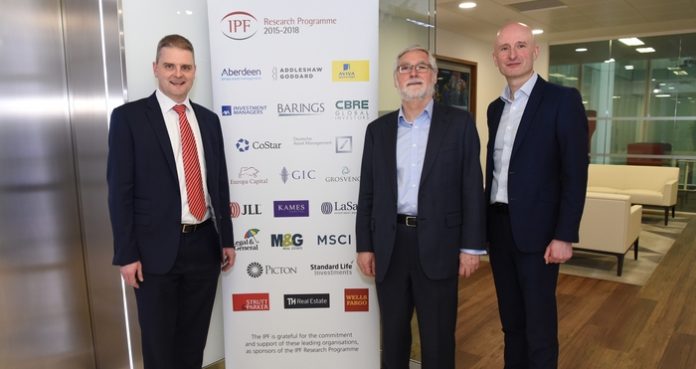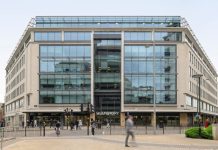The UK’s commercial property boom looks set to continue for at least another seven years, according to a leading property industry adviser and strategist.
Based on previous property boom and bust cycles, the next significant market downturn could occur in 2025, 16 years after the last big crash in 2008/09.
Speaking at an event in Birmingham, organised by the Midlands branch of the Investment Property Forum (IPF), Dr Robin Goodchild, special adviser at LaSalle Investment Management, said: “The nature of property markets is cyclical. They boom and then they bust. By looking back at past cycles, history tells us that significant market events have occurred every 16 to 18 years, so from this we can predict the next one could happen around 2025.
“This is by no means inevitable. Unlike previous property market downturns in the early ‘70s, late ‘80s and the global financial crisis, which were debt driven, we are now in an equity driven market, which is much more stable. Acquisitions are much less leveraged than in the early 2000s and loan to values, albeit they have risen recently, are still at historically low levels.”
Dr Goodchild said there were important lessons to be learnt from previous property cycles that will help avoid, or at least mitigate, the impact of the next big downturn.
“Memory is our biggest ally. Because the 2008/09 crash was so devastating, its effects will stay longer in corporate memories and therefore they will be more risk averse. The problem comes when those who haven’t experienced a significant downturn and so have no knowledge of its effects, reach positions of seniority in their organisations.
“As we have seen from previous cycles, debt driven real estate markets are dangerous. Property can look like a very easy business in a boom, but too much development can also be problematic.
“Pay close attention to commercial property values; if they increase by more than 25 per cent in a two to three-year period there is a very high probability that a bust will occur.
“In the property booms of the 1970s, late 80s and prior to the global financial crisis, commercial property real capital values peaked at 27.9 per cent, 29.5 per cent and 31.2 per cent respectively. In 2014/15, capital values reached 21 per cent, which wasn’t enough to be classed as a boom and therefore a bust didn’t follow.
“Looking ahead there is a high chance the next major boom/bust cycle will occur around the middle of the next decade. It’s not inevitable, but all things being equal, much more likely than an immediate correction.”
Damian Lloyd, senior director in the investment team at GVA in Birmingham, chaired the event. He said: ‘We are seeing very strong demand and low stock levels for property in the Midlands and pricing is at, or approaching, 2007 levels. For this reason, a lot of property professionals are thinking we must be at the top of the market. Maybe that’s true in terms of value, but clearly it doesn’t follow that we are due a crash. Investors in Midlands property should take comfort from this research.”





















